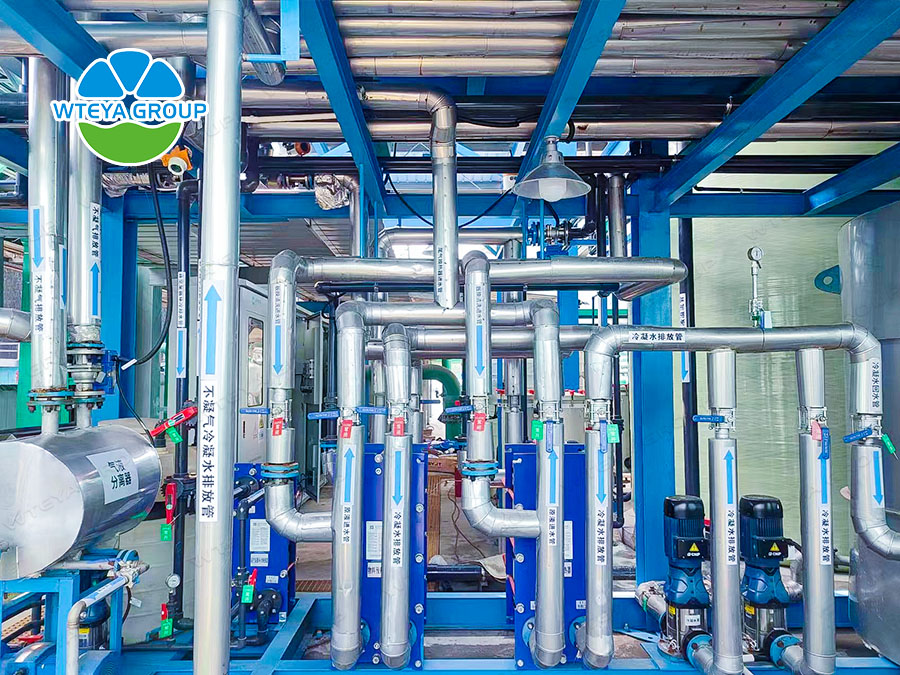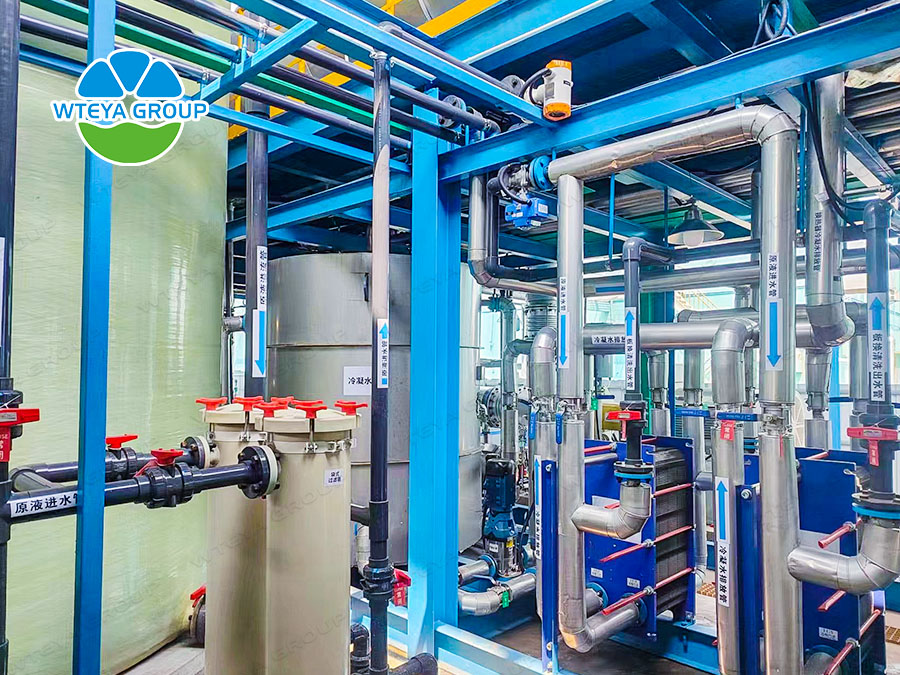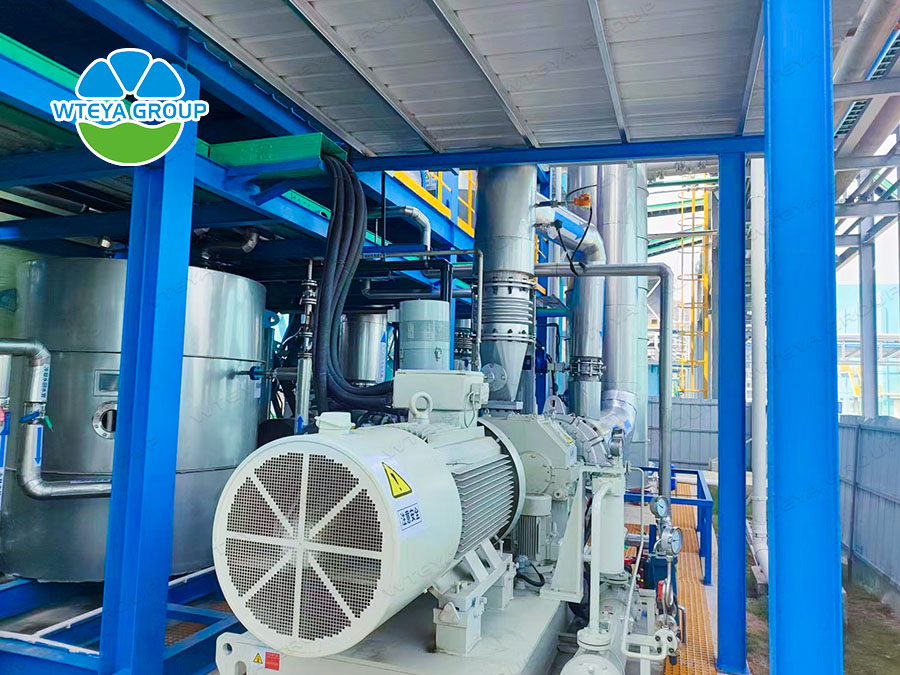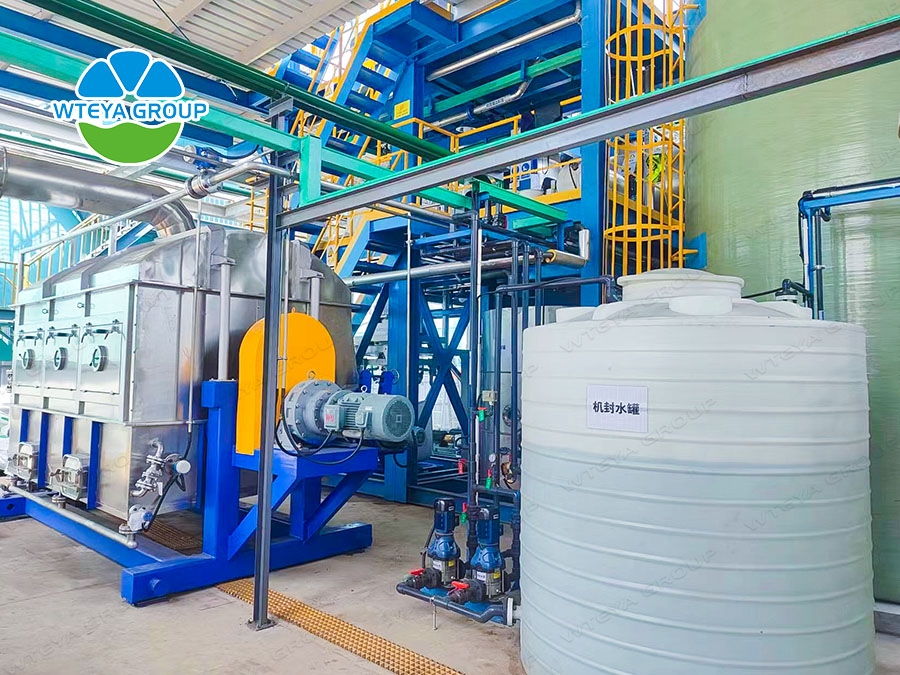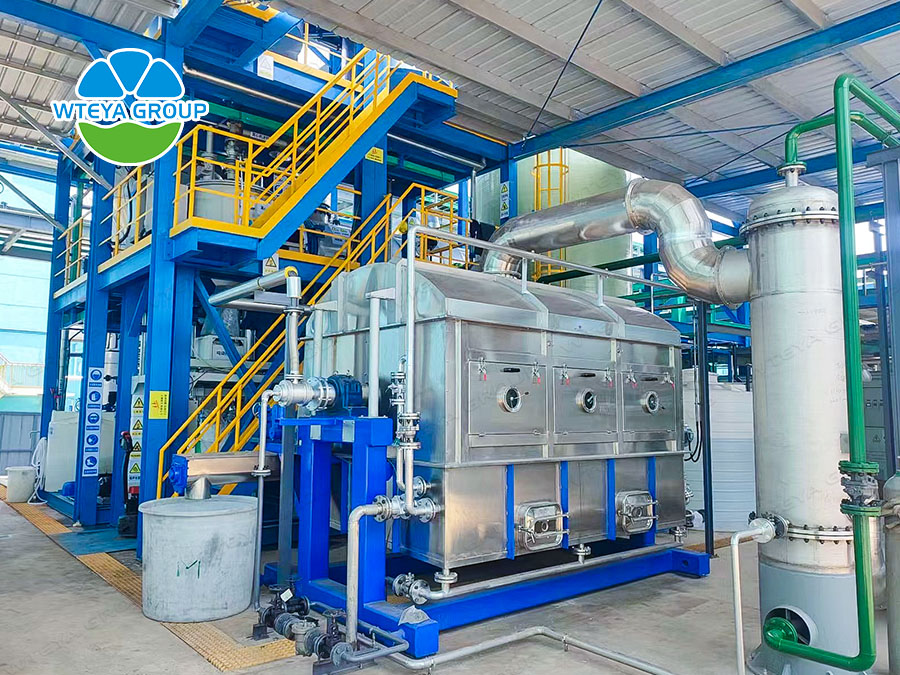MVR Evaporators vs. Other Evaporation Systems: Which Is Right for Your Industry?
When it comes to industrial evaporation processes, selecting the right evaporation system is critical to both operational efficiency and cost-effectiveness. Mechanical Vapor Recompression (MVR) evaporators are increasingly popular in industries looking to reduce energy consumption while maintaining high-quality output. This guide compares MVR evaporators with other traditional evaporation systems, helping you determine the most suitable solution for your specific industry needs.
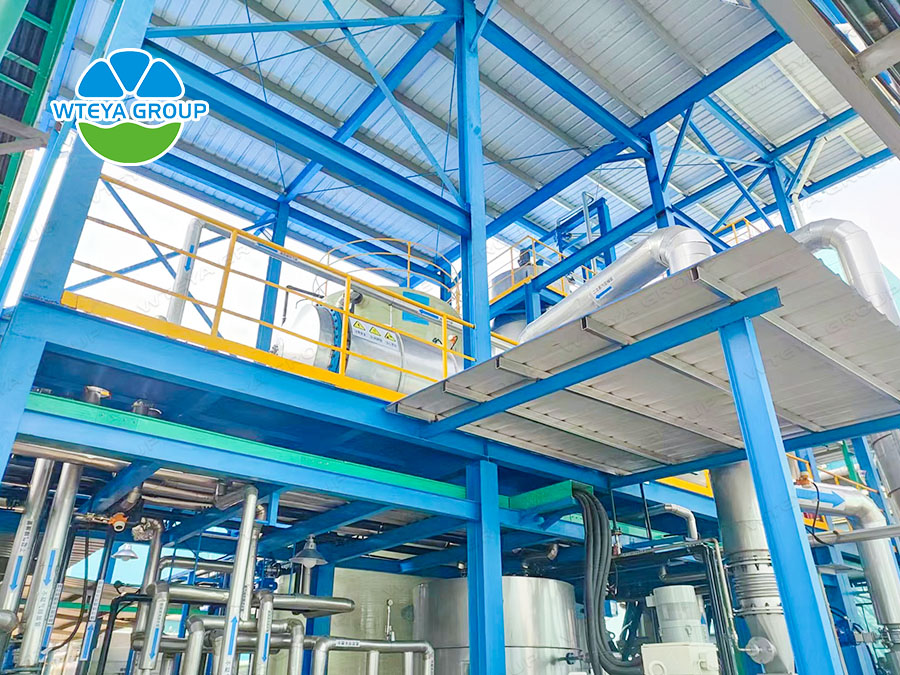
Key Selling Points of MVR Evaporators
Energy Efficiency: MVR evaporators are known for their high energy efficiency, reducing the overall energy consumption compared to traditional evaporation systems. By reusing vapor to generate additional heat, MVR systems consume less power while maintaining performance.
Reduced Operational Costs: Due to their lower energy consumption, MVR evaporators help companies save on electricity bills, providing long-term cost savings.
Compact Design: MVR evaporators are more compact than many other evaporators, making them suitable for operations with space constraints.
Environmental Benefits: With reduced energy consumption and lower CO2 emissions, MVR systems align with sustainability goals, making them ideal for environmentally conscious industries.
Solving Industry Pain Points
The primary advantage of MVR evaporators lies in solving the energy-intensive challenges faced by industries relying on evaporation for concentration processes. Traditional evaporation systems often use direct steam injection or require external heat sources, which can be expensive and wasteful. MVR evaporators address these pain points in several ways:
Energy Waste Reduction: By recapturing and reusing vapor, MVR evaporators minimize waste, offering a significant reduction in energy usage.
Consistent Performance: Traditional systems can experience performance fluctuations, especially when external energy sources are unstable. MVR technology offers consistent, reliable operation regardless of fluctuations in external factors.
Lower Maintenance Costs: With fewer components that wear out due to the system’s closed-loop process, MVR evaporators generally require less maintenance and fewer repairs.
Applications of MVR Evaporators
MVR evaporators are used in a variety of industries where energy savings and high-efficiency operations are paramount. Their most common applications include:
Chemical and Pharmaceutical Industries: MVR systems are used to concentrate solvents, pharmaceuticals, and other chemical solutions, where energy efficiency and high-quality output are crucial.
Food and Beverage Processing: In the food industry, MVR evaporators are used for concentrating juices, dairy products, and other liquid foods while preserving the quality and flavor of the product.
Wastewater Treatment: MVR evaporators are an effective solution for treating and concentrating wastewater by removing water and reducing the volume of waste products, making disposal easier and more cost-effective.
Desalination and Water Purification: The technology is also used in desalination plants to improve the efficiency of water purification processes.
Advantages of MVR Evaporators
Low Energy Consumption: The key advantage of MVR evaporators is their ability to recover and reuse vapor, significantly lowering energy consumption. This makes them ideal for industries with high evaporation demands, such as chemical and food processing.
High Thermal Efficiency: MVR systems boast thermal efficiencies of up to 90% or more, drastically improving operational performance and reducing fuel and steam costs.
Scalability: MVR evaporators can easily be scaled to meet the demands of various industries. Their modular design allows them to be adapted for small and large-scale operations.
Cost-Effective for Large Volumes: For industries that process large volumes of liquid, MVR evaporators are a more cost-effective option than other systems, providing faster returns on investment due to energy savings.
Flexible Operations: MVR evaporators offer flexibility in terms of capacity and operational parameters, allowing them to meet the specific needs of different applications.
Design Features and Unique Selling Points
MVR evaporators stand out in several areas, particularly in their design and operational efficiency:
Heat Recovery System: One of the defining features of MVR evaporators is the mechanical vapor recompression system. This system recycles vapor to generate additional heat, which can be reused in the evaporation process, dramatically improving energy efficiency.
Compact and Modular Design: MVR evaporators are designed to be compact, requiring less space compared to traditional evaporators. Their modular nature makes them adaptable for both large and small-scale installations.
Low Maintenance Needs: MVR evaporators have fewer moving parts, resulting in less wear and tear. This design leads to fewer maintenance requirements and higher reliability.
High Performance at Low Cost: Despite the initial investment cost, the long-term energy savings and minimal maintenance make MVR evaporators a highly cost-effective solution in the long run.
How MVR Evaporators Compare with Other Evaporation Systems
Multiple Effect Evaporators (MEE): While MEE systems also aim to improve energy efficiency by using multiple stages of evaporation, they still require external heat sources, such as steam, which increases energy consumption. MVR evaporators are more energy-efficient as they reuse vapor in a closed-loop system, reducing the need for external energy.
Thermal Evaporators: Thermal evaporators are often less energy-efficient because they rely on direct heating methods, which leads to higher operational costs. In contrast, MVR evaporators reduce energy consumption by reusing the heat generated in the process.
Reverse Osmosis (RO) Systems: While RO systems are used for water desalination and wastewater treatment, they tend to be less effective for high-volume, concentrated liquid applications. MVR evaporators are more suited for industries requiring the removal of large quantities of water from liquids while maintaining quality.
The Value of MVR Evaporators in Industry
MVR evaporators offer substantial value to industries by improving energy efficiency, reducing operational costs, and providing consistent and reliable performance. The advantages of reduced maintenance and increased thermal efficiency translate into long-term savings and a lower total cost of ownership.
Industries like food processing, pharmaceuticals, and chemicals can leverage MVR technology to reduce their environmental footprint, enhance operational performance, and improve product quality. By investing in MVR systems, companies can achieve significant operational benefits while contributing to sustainability efforts.
Conclusion: Which Evaporation System is Right for Your Industry?
When deciding between MVR evaporators and other evaporation systems, it’s essential to consider factors such as energy consumption, maintenance requirements, and the scale of operations. MVR evaporators stand out for their ability to significantly reduce energy consumption, offer scalability, and provide cost-effective long-term solutions. They are the ideal choice for industries requiring high-volume evaporation with minimal energy waste, including chemical manufacturing, food processing, and wastewater treatment.
For industries looking to optimize performance and reduce operational costs, MVR evaporators offer a compelling, sustainable solution that delivers impressive efficiency and value.








